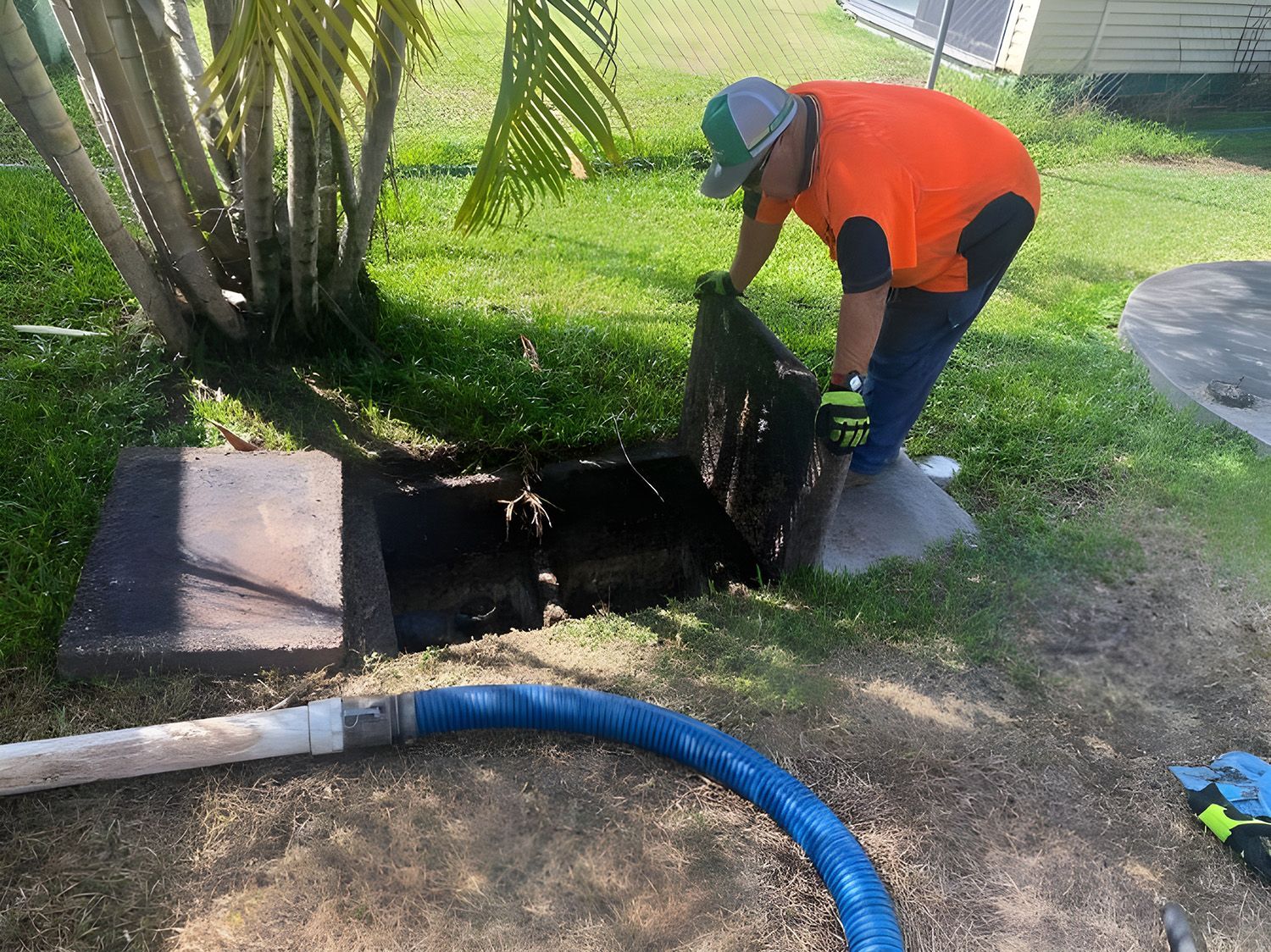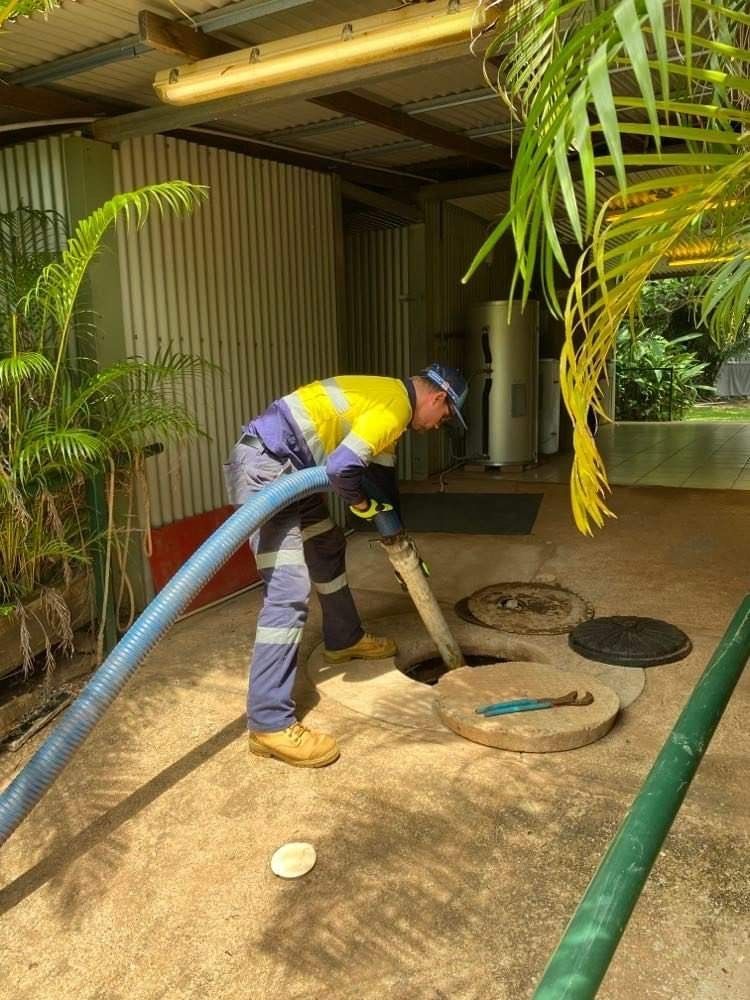Top Maintenance Tips For Your Septic Tank In Darwin — Avoiding Emergency Repairs & Extending System Life
A well-functioning septic system is essential for any property that relies on it, yet it’s often one of the most overlooked parts of home maintenance. Without proper care, even a small issue can quickly lead to unpleasant odours, costly repairs, and environmental damage. For property owners searching for Septic Tank Cleaning in Darwin or wondering about effective septic tank maintenance tips, understanding how to care for your system between professional cleanings is key.
By adopting smart, consistent habits, you can extend your system’s life, prevent breakdowns, and keep everything running efficiently. Here’s how to care for your septic system year-round and avoid those unwelcome emergency repairs.
1. Understand How Your Septic System Works
Before you can maintain your system properly, it helps to understand what it does. A septic system treats wastewater from your sinks, toilets, and drains, separating solids from liquids. The solids settle in the tank, while liquids flow into a drain field for further treatment by the soil.
When maintained correctly, this process runs smoothly for years. However, neglecting even one aspect of the system—like cleaning filters or managing water use—can cause blockages and overflows.
Knowing how your system functions gives you the foundation to make better maintenance decisions every day.
2. Watch Your Water Usage
Too much water entering your septic system too quickly can overload the tank, preventing solids from settling and forcing untreated wastewater into the drain field. To avoid this, spread out your household’s water use and avoid sudden surges.
Practical ways to reduce strain include:
- Fixing leaking taps and toilets promptly
- Installing water-efficient fixtures and appliances
- Staggering laundry loads throughout the week instead of doing them all in one day
- Avoiding long showers or leaving taps running unnecessarily
Monitoring your water consumption is one of the simplest ways to protect your system and avoid overloading it.
3. Be Careful What You Flush
Your septic system isn’t designed to process everything that goes down the drain. Flushing the wrong materials can clog pipes, disrupt bacterial balance, and cause expensive repairs.
Avoid flushing or draining:
- Wet wipes (even those labelled “flushable”)
- Sanitary products or nappies
- Coffee grounds, grease, and cooking oils
- Harsh chemicals, paints, or solvents
Only human waste and toilet paper should go down the toilet. Everything else should go in the bin to prevent blockages and system damage.
4. Maintain a Healthy Bacterial Balance
Beneficial bacteria in your septic tank are crucial for breaking down waste efficiently. Using too many chemical cleaning products or antibacterial agents can kill these bacteria, slowing the treatment process.
Instead:
- Use septic-safe cleaning products
- Avoid excessive bleach and disinfectants
- Choose natural alternatives like vinegar or baking soda for cleaning
Maintaining this balance helps your septic system process waste effectively and prevents sludge build-up that can lead to clogs or system failure.
5. Protect the Drain Field
Your drain field is the final treatment stage of your septic system, allowing filtered wastewater to safely re-enter the ground. Keeping it clear and healthy is essential to prevent flooding and contamination.
To care for your drain field:
- Never park vehicles or place heavy structures on it
- Direct roof and surface water away from the area
- Avoid planting deep-rooted trees or shrubs nearby, as roots can damage pipes
A well-maintained drain field ensures your septic system continues to operate efficiently and safely for many years.
6. Schedule Regular Inspections
Even with good habits, your septic system needs periodic professional attention to stay in peak condition. A licensed specialist can check for leaks, measure sludge levels, and identify early warning signs before they become major issues.
During an inspection, professionals will:
- Test system flow and drainage
- Inspect baffles, filters, and lids for damage
- Recommend maintenance or cleaning if necessary
Routine checks give you peace of mind and help prevent small issues from turning into emergencies.
7. Manage What Goes Down the Sink
Kitchen habits can have a big impact on your septic system’s health. Grease, fats, and food particles may seem harmless when rinsed down the drain, but they can harden in pipes and cause blockages.
To protect your system:
- Scrape plates before washing
- Use sink strainers to catch food scraps
- Pour cooking oils into containers for disposal rather than down the drain
These small steps go a long way toward preventing build-up and maintaining smooth operation.
8. Prepare for Seasonal Changes
In Darwin’s tropical climate, heavy rain and humidity can affect your septic system’s efficiency. Preparing for seasonal shifts helps you stay ahead of potential problems.
During wet season:
- Check for pooling water near the drain field
- Ensure gutters and downpipes direct water away from the tank area
- Reduce water use during extended rain periods to prevent overloading
Dry season, on the other hand, is ideal for inspections and any necessary maintenance, as conditions make access easier for technicians.
9. Know the Early Warning Signs
Recognising the first signs of trouble can help you act before the situation escalates. Common indicators your system needs attention include:
- Slow-draining sinks or toilets
- Gurgling sounds from pipes
- Unpleasant odours around the tank or drain field
- Water pooling in unexpected areas of your yard
If you notice any of these symptoms, contact a professional immediately for Septic Tank Cleaning in Darwin. Early intervention can prevent damage and reduce long-term costs.
10. Keep Maintenance Records
Documenting inspections, cleanings, and repairs helps you stay on top of your septic care routine. Keep a record of service dates, technician recommendations, and any minor issues noted.
This information:
- Helps track when the next cleaning is due
- Provides valuable insight for future servicing
- Ensures consistent care even if ownership changes
An organised maintenance record helps keep your system running efficiently and your property in compliance with local regulations.
Speak With Our Septic Specialists
We at Ecotreat Solutions NT provide professional Septic Tank Cleaning Darwin services to help property owners keep their systems healthy, efficient, and environmentally safe. If you’ve been searching for Septic Tank Cleaning near me, our local team offers expert advice and practical solutions tailored to Darwin’s unique conditions.
Visit
https://www.ecotreatsolutionsnt.com.au/ to learn more about effective septic system care in Darwin or to schedule an inspection. We’re here to help you maintain your system year-round, avoid costly repairs, and protect your home and environment for the long term.





